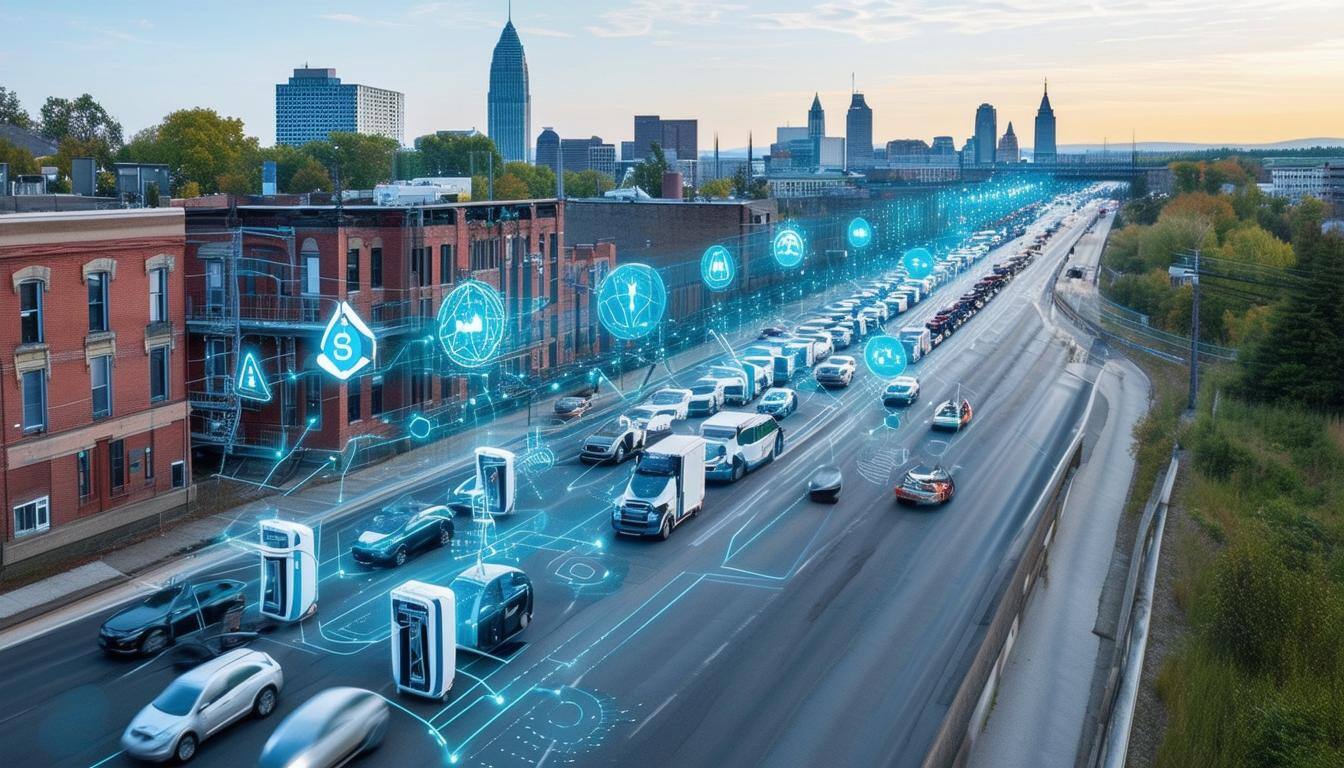Commercial Fleet Management: Strategies, Tools & Tips
Commercial fleet management plays a vital role in keeping businesses running smoothly, especially in industries like transportation, logistics, and...
Keep an eye on the road
Simplify your driver's routine
For efficient decision making
Ensure the compliance of your fleet
Simplify the daily life of your drivers
Maximize the value of your data
Unparalleled monitoring of your assets
The friendly competition that pays off
Planning powered by data
Exceed your customers' expectations
Provide better service to your users
Maximize the satisfaction of your citizens
Simplify your daily life on the construction site
Facilitate the electrification of your fleet
Our experts meet your needs
Easily meet the standards
Improve the safety of your drivers
Protect your data and your fleet
2 min read
Patrick Vallerand
Nov 14, 2024 3:37:54 PM

Do you remember the last time a salesperson boasted about a car's fuel consumption 6 liters per 100 km for a car? Our reaction is often the same: “Maybe, but under ideal conditions only.” Manufacturers are making efforts to this promise, but achieving the claimed fuel consumption remains a challenge. In the field of transport electrification, the question of autonomy comes up again and again.We often hear that an electric vehicle doesn't cover enough kilometers to justify the investment. This “range anxiety” is one of the major obstacles to the the adoption of this technology. Followers of our blog now know that a multitude of factors influence a vehicle's energy consumption. Manufacturers can't control cannot control all these elements and do their best to provide a realistic estimate.
The energy transition must be carefully planned so as not to disrupt the operations. This is where the Decarbonized Corridor project comes in, a key initiative in which Nationex is involved, operating class 8 electric trucks on the Quebec/Montreal corridor. They also share the data needed for effective planning energy transition.
Many factors influence energy consumption, whether fuel or electricity. If we take the example of a bicycle, the distance covered varies according to the weight pulled climatic conditions, the cyclist's physical condition, etc. In the same way, the car the weight of loads, topography or temperatures to which the vehicle will be exposed. It is therefore impossible to give a perfectly accurate estimate of fuel consumption.
Nationex, a recognized transport and logistics company, stands out for its reliability and speed of delivery. With a solid network across Canada, Nationex is actively involved to the electrification of transportation, reflecting its vision of a sustainable and innovative future. By integrating electric vehicles into its fleet, the company is positioning itself as a leader, aligning its values with those of its customers in search of greener solutions.
As part of this initiative, Nationex has teamed up with Propulsion Québec, Systra and AttriX to launch a pilot project for a 100% electric corridor between Quebec City and Montreal. This project will see 18 medium- and heavy-duty vehicles put into service, thereby avoiding the equivalent of the annual emissions of 350 cars, over a three-year period.
The roles of the various partners :
The following information will be available:
These data are essential for successful energy transition planning.
My career path has enabled me to work on many large-scale projects and to develop expertise. By joining AttriX, I have chosen to share this experience in a meaningful project. The energy transition is a necessary revolution and I want to play a full part in this transformation. This carbon-free embodies this commitment, as it promotes the sharing of information and experience key to any successful transition. We hope that this initiative, with Nationex, will inspire others to take the plunge and join the movement towards a more sustainable future.

Commercial fleet management plays a vital role in keeping businesses running smoothly, especially in industries like transportation, logistics, and...

In fleet management, fleet compliance services play a much bigger role than just checking a box. They’re about keeping your drivers safe, your...

Trucking has always come with its fair share of challenges, from road safety and liability issues to managing fleet efficiency. As the industry...